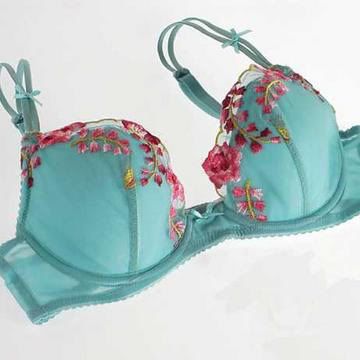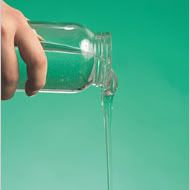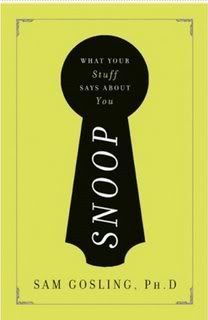The need to bleed
Speaking of transcending biology, how would you like to stop having a period?
Sweet bloodless menstrual suppression! That sounds like heaven. But I'm skeptical of the safety of taking menstruation-suppressing hormones 365 days a year.
There are reasonable arguments on both sides.
For menstrual suppression:
Against menstrual suppression:
So, while choosing to eliminate my period sounds like an unbelievably good deal, I can't say that I'd jump on that bandwagon. I tend to agree with critics who say the pharmaceutical industry has more of a financial stake in this than an obligation to help women be fully healthy, and I would want to see many decades of research before assuming that there were negligible health risks.
I guess we can assume that most women are uncomfortable with having periods (they are icky, and this fact is exacerbated by the fact that they have been set up using a disease model in many ways), but I think the push to transcend the oppression of menstruation has a lot to do with women being fed up with being told that they are unstable freaks for a week out of every month.
Sure, hormone shifts of any kind do crazy things to the brain (for example, I can be counted on to go through three days of self-loathing every month), but the "don't let her near the red button" school of thought that has so impeded women's social and political progress is such nonsense, and is such a pervasive myth that even some women buy into it.
So will eliminating periods solve not just the physical discomfort that comes from them, but also women's social inequality, which seems at least partyly contingent on her status as an unstable, menstruating woman? Doubtful. But it's an interesting thought.
Geraldine Matus, a holistic reproductive health care practitioner in Edmonton, makes a good point:
Is it ironic that I would much rather see an ejaculation-suppression pill on the market than a menstruation-suppressing pill?
(Via Digg)
In 2006, a new oral contraceptive called Anya, developed to "put women in control of when or if they want to menstruate," is expected to hit the Canadian and U.S. markets. Manufactured by Collegeville, Penn.-based Wyeth Pharmaceuticals -- and currently pending approval by Health Canada -- Anya is the first low-dose birth control pill designed to be taken 365 days a year, without placebos (the hormone-free sugar pills taken at the end of every 28-day cycle).
Sweet bloodless menstrual suppression! That sounds like heaven. But I'm skeptical of the safety of taking menstruation-suppressing hormones 365 days a year.
There are reasonable arguments on both sides.
For menstrual suppression:
Dr. Shari Brasner, a 40-year-old Manhattan gynecologist, says she, for one, just doesn't have time to menstruate. Brasner has been suppressing her period for a decade with the continuous use of birth control pills, "whatever samples I've got in my cabinet at my office." (While many women have used this off-label method to skip a single period that is ill-timed to a vacation or honeymoon, it is generally practised only by women with severe menstrual difficulties, under doctor's supervision.) "I have an incredibly busy day," she says, "and the reality is, I just don't have time to get to the bathroom every two or three hours to change a tampon or a sanitary napkin." Brasner adds that she believes her use of birth control pills "to be safe. I know it to be effective, and it saves me time, energy and in the long run, some money. Just in dry cleaning bills alone."
Brasner and other advocates of stopping menstruation point out that among the greatest fallacies in modern popular medicine is the notion that women on oral contraceptives -- roughly 1.5 million in Canada -- experience a period every month. In fact, what they experience is "a fake period," what doctors call a withdrawal bleed. "Women on birth control bleed not because they're having a menstrual cycle, but because when they take their placebo pills, their bodies are withdrawing from the progesterone cycle in the active tablets," says Dr. Leslie Miller, a professor of obstetrics and gynecology at the University of Washington, who runs the pro-suppression website Noperiod.com. In other words, she says, there's nothing natural about it.
...
In 1999, a Brazilian gynecologist named Dr. Elsimar Coutinho polarized the women's health community with the publication of Is Menstruation Obsolete? How Suppressing Menstruation Can Help Women Who Suffer From Anemia, Endometriosis, or PMS. In the book, Coutinho argues that the contemporary woman has many more periods than nature likely intended. A hundred years ago, he points out, the average age of onset was roughly 16. Now, a girl's first period often comes as early as 10 or 11. (Theories to explain this phenomenon run the gamut from higher childhood obesity rates to increased exposure to chemicals in the environment.) Also, women are waiting longer to get pregnant and having fewer pregnancies. Which means that whereas a 19th-century woman may have had fewer than 50 menstrual cycles in her lifetime, the modern woman often has more than 400.
To have so many periods, he says, isn't only a nuisance, but may be an unnecessary hazard to a woman's emotional and physical health. Menstruation, he says, can exacerbate anemia, migraines, endometriosis and polycystic cysts. Also, the frequent use of tampons puts women at risk for toxic shock or vulvar irritation.
Against menstrual suppression:
"Menstruation, this amazingly intricate, carefully crafted cycle, is a vital sign of our health," says Dr. Jerilynn Prior, an endocrinologist and the scientific director of the Centre for Menstrual Cycle and Ovulation Research at the University of British Columbia. "To wantonly disrupt it is a horrifying thought. Regulatory bodies are saying, 'We approved the original pill, so this must be okay. It's just taking the pill more frequently.' But even the original pill probably contains negatives we still don't really know about." The continuous-use pill, she says, is just a way for pharmaceutical companies to revive flagging products -- to find fresh ways to market them by giving them a "new face and a new name."
In 1993, Margie Profet, an evolutionary biologist at the University of Washington, published a groundbreaking thesis asserting that, aside from its obvious function, menstruation serves to protect women against STDs and infertility by flushing out the reproductive system, ridding it of pathogens, bacteria and other sperm-borne toxins. Also, says Dr. Susan Rako, a Boston-based psychiatrist and women's reproductive health expert whose 2003 book No More Periods? denounced menstrual suppression, a woman's blood pressure is reduced for two weeks of every month during a normal menstrual cycle. "There's a normal physiology that causes this to happen," she says. "It's like your body puts out its own antihypertensive medication every month for two weeks. Women on the birth control pill don't have this experience."
...
The argument for cessation of periods is couched in feminist notions of choice and control, says Prior, but you can't truly have either when you don't have all of the information, the regulatory bodies aren't demanding it, and the pharmaceutical industry stands to make billions by pushing the drug through. "From a cultural perspective, I think it's misogynistic," says Matus. "Women's bodies are a marvellous thing to commodify. We have all sorts of processes that can be turned into diseases and disease models: pregnancy, nursing, menstruation, menopause -- all of these things. And because we tend to use the health care system more than men, we're a great market share."
So, while choosing to eliminate my period sounds like an unbelievably good deal, I can't say that I'd jump on that bandwagon. I tend to agree with critics who say the pharmaceutical industry has more of a financial stake in this than an obligation to help women be fully healthy, and I would want to see many decades of research before assuming that there were negligible health risks.
I guess we can assume that most women are uncomfortable with having periods (they are icky, and this fact is exacerbated by the fact that they have been set up using a disease model in many ways), but I think the push to transcend the oppression of menstruation has a lot to do with women being fed up with being told that they are unstable freaks for a week out of every month.
Women's conflicted feelings about menstruation, while rooted primarily in its attendant pain, discomfort and inconvenience, are also stoked by centuries, if not millennia, of superstitious rhetoric that has, in many ways, reinforced the perception of women as the morally, physically and intellectually weaker sex. There is a long-standing belief that, for at least one week out of every month, women are practically insane, and unfit for anything requiring logic or rationality. In 1878, the British Medical Journal published an essay about the potential hazards of allowing women to practise medicine, since menstruating women tainted meat when they touched it. In France as recently as 100 years ago, menstruating women were not permitted to enter sugar factories for fear they would spoil the boiling sugar. Scientific studies designed to combat suffragettes in the 1920s "proved" that women were too unstable to participate in the civic process because of their cycles. Among other things, menstruation has been deemed the root cause of female hysteria, marital problems, "cussedness," weight gain, bad mothering, murder and indigestion.
Sure, hormone shifts of any kind do crazy things to the brain (for example, I can be counted on to go through three days of self-loathing every month), but the "don't let her near the red button" school of thought that has so impeded women's social and political progress is such nonsense, and is such a pervasive myth that even some women buy into it.
So will eliminating periods solve not just the physical discomfort that comes from them, but also women's social inequality, which seems at least partyly contingent on her status as an unstable, menstruating woman? Doubtful. But it's an interesting thought.
Geraldine Matus, a holistic reproductive health care practitioner in Edmonton, makes a good point:
"I could make the same argument about men and ejaculation. I could say, 'Men don't need to ejaculate. It's messy; it means a loss of essential nutrients; it's embarrassing when you have a wet dream and your mother comes in. So take a pill to suppress it.' But that would change everything about how he works. And they'd probably burn us at the stake if we suggested it. But that's how ridiculous this is."
Is it ironic that I would much rather see an ejaculation-suppression pill on the market than a menstruation-suppressing pill?
(Via Digg)




















2 Comments:
I for one cherish my period and save them every month in plastic baggies.
Ha ha! Kristin, you get the Nick Fowler Award for that one.
Post a Comment
<< Home